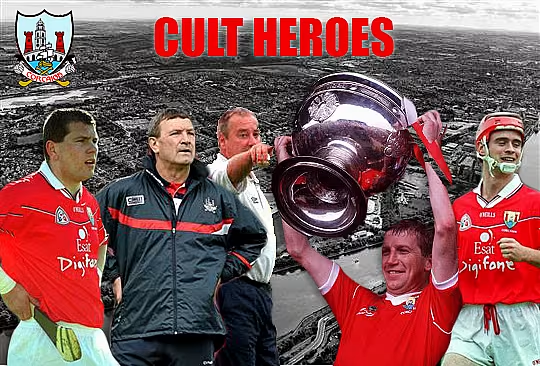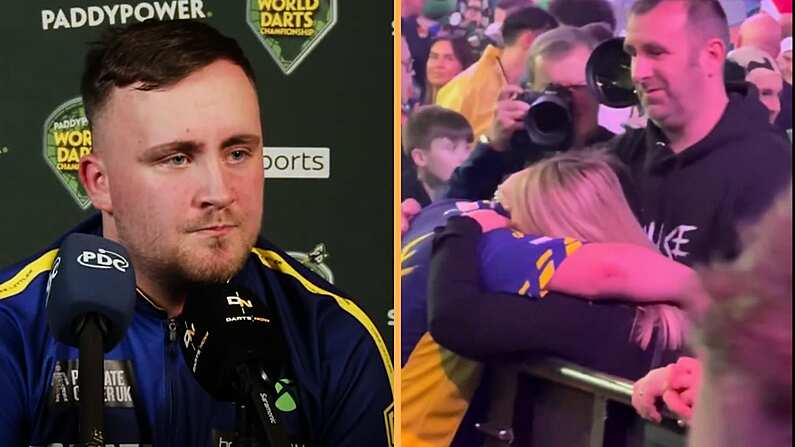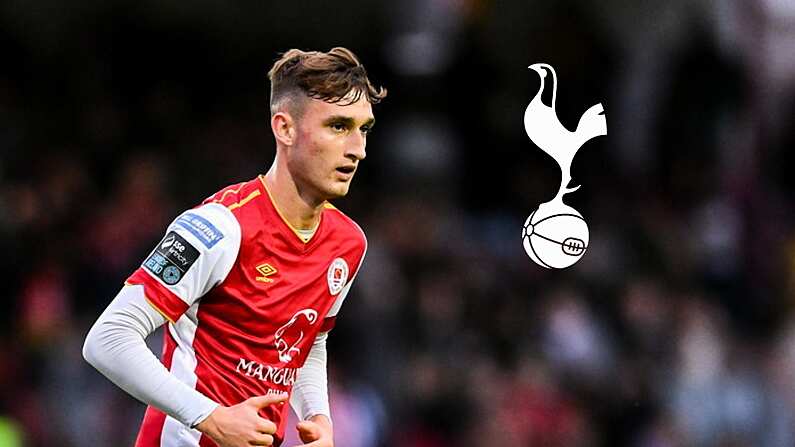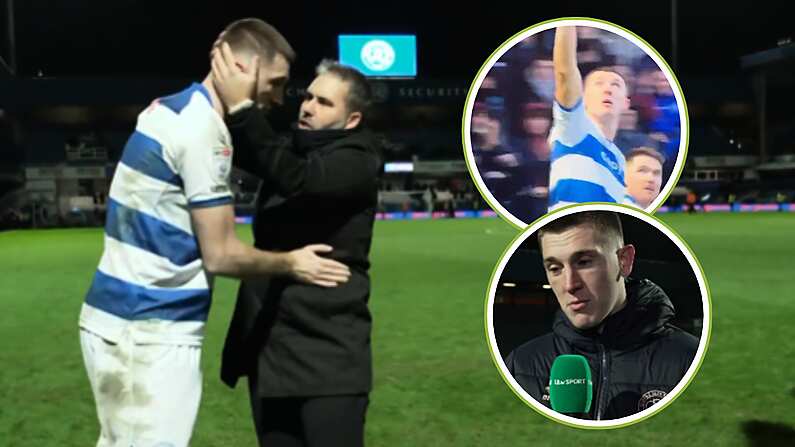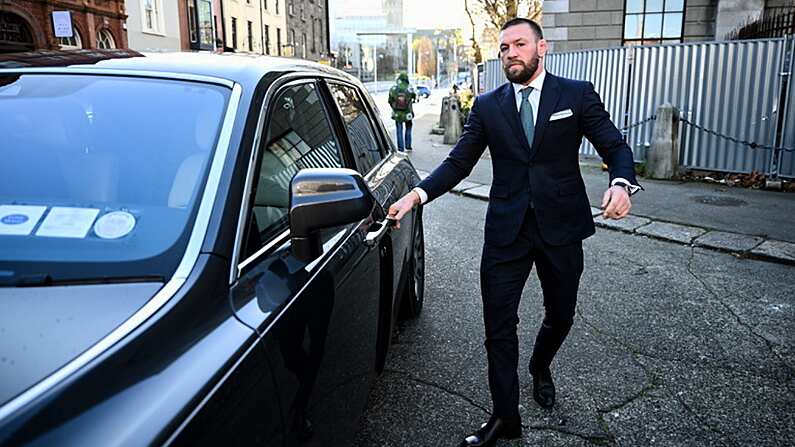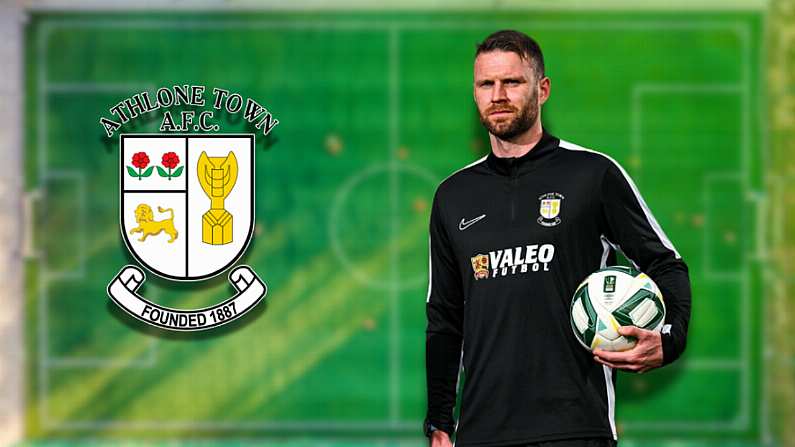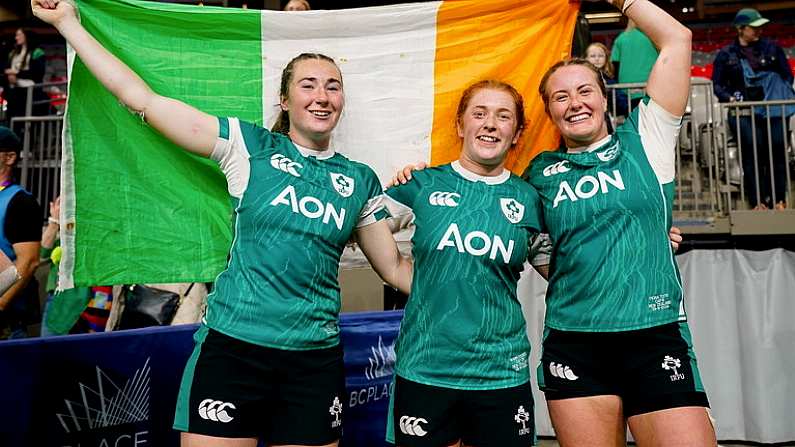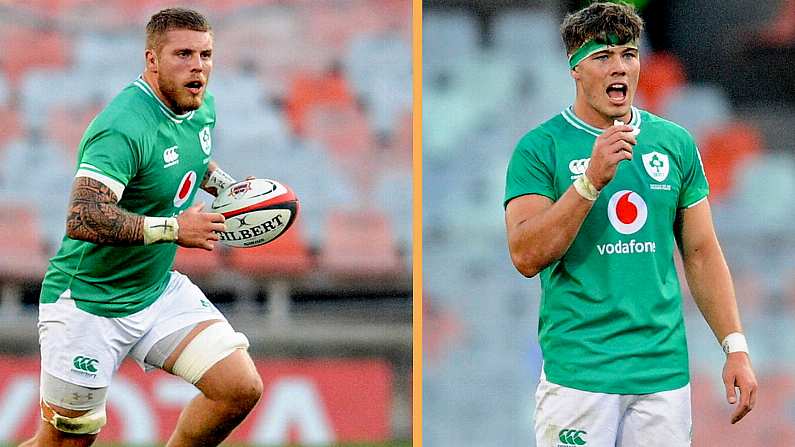In honour of Cork Week, we have moved the Cork GAA Cult hero poll forward.
The mission statement of the cult hero series can be viewed here and we would encourage you to do so. Before we go any further, we must congratulate Eoin Kelly, aka, the 'Son of God' on his victory in the Tipperary poll of two weeks ago.
We consulted with the Sunday Times's Michael Foley and author, history lecturer and Irish Times columnist Dave Hannigan before choosing the five nominees.
Readers can pick the greatest Cork cult hero of the lot from the august shortlist below. Vote early and vote often. Please share your own personal narratives attesting to the cult hero-ness of your chosen candidate to [email protected].
Seanie O'Leary
Responsible for keeping Tipperary locked in the doldrums longer than they might otherwise have been. In Fitzgerald Stadium three years later, Richie Stakelum hollered that the famine was over. Tipp haters have Seanie to thank for it dragging on that long.
The 1984 Munster Final was at the time regarded as the best ever. So good that it now boasts its own wikipedia page, no less. Tipperary hadn't won a provincial title since 1971 and spent the latter part of the 70s dreaming of one day winning a match again.
By '84, it seemed their time had come. They led Cork by four points with only seven minutes left. In the dying moments, Tony O'Sullivan scored from the rebound. Seconds later, the same player tried for a winner.
It seemed as if the shot for glory would just clear the crossbar but it was batted down by goalkeeper John Sheedy. Quick as a flash, Seanie pounced on the loose ball and swept it into the net. Game won. Mick Dunne's voice was hoarse with excitement in the commentary box by the end.
It was the final year and O'Leary didn't look the picture of good health at the time but then since when did supreme fitness count for anyone in cult hero stakes. Indeed, you get marks chalked off for elite conditioning.
In the subsequent All-Ireland, also in Thurles that year, Cork won handily and Seanie slipped home two goals. JBM laid him on for the first one.
"The old firm are back in tune!" cried Micheal O'Hehir. O'Leary finished up that year, with four All-Ireland titles to his name.
Jimmy Barry Murphy
When Cork unexpectedly reached the All-Ireland final three years ago, the popular folk hero was not any of the players but their hero manager.
'In JBM we trust' was the mantra of the summer. His presence on the touchline had lifted Cork from irrelevance to the brink of an All-Ireland within two years.
Now he's gone, Cork's difficulties since have only underlined his achievements in the 2013 and 2014.
By common consent, the coolest man ever to pick up a hurl or play with an O'Neills. This was established remarkably early on when, as a 19 year old, he took the field for the 1973 All-Ireland football final against Galway.
It was a swaggering Cork team and no one swaggered more than Jimmy. He rifled home a first half goal, toying with the Galway defence, pausing and soloing on the spot before stroking the ball into the corner. Micheal O'Hehir's commentary managed to add to the prevailing aura around the youngster.
Dave Hannigan, who described him as the ultimate "populist hero" in Cork has written about JBM and his meaning to those who followed Cork in the 70s and 80s.
To his generation, Christy Ring was a folk story handed down by their fathers and grandfathers, but Jimmy Barry Murphy was "a living, breathing, technicolour deity who walked among us. The day after watching him perform some wondrous feat like pilfering three goals against Blackrock down the Pairc, you might see him nipping out of Lennox’s chipper on Bandon Road on the way home."
As we noted in our Mount Rushmore post, when you watch a GAA clip on youtube and fail to close the tab, the site will direct you onto similar videos, and you will get trapped in a Laochra Gael cycle, watching breezy tributes to the likes of Mikey Sheehy and DJ Carey and, of course, Jimmy Barry Murphy.
Like Sheehy, Jimmy Barry Murphy looks like he's cut from more modern cloth than the rest of the players on the pitch. While the rest of the combatants horse into the ball in an agricultural fashion, Jimmy's play is measured and elegant. From the vantage point of the 21st century, he looks twenty years ahead of his time.
Dinny Allen
Like so many Cork icons in the 1970s, Dinny Allen seemed to play more or less everything. Gaelic football, hurling, soccer. Had he been born in India, he'd have played cricket. Had he been born in Pakistan, he'd be a dab hand at the Kabbadi.
For a long time, it looked like soccer would be the only sport that would give him a national medal. He won an FAI Cup with Cork Hibs in 1973. They beat Shels 1-0 in a replay in Flower Lodge, latterly Pairc Ui Rinn.
For the sin of toying with soccer, Allen lost his place on the Cork Gaelic football team that year. Naturally, a swaggering Cork outfit went and won the All-Ireland, beating Galway in a high-scoring final.
By the time Dinny was welcomed back to the fold, Mick O'Dwyer's 'Greatest Team of All-Time' were already away and motoring.
It was the 1975 Munster Final where Allen objected to O'Sé's abrasive marking style and decided to let back the elbow. He let it back a fair degree of vigour. O'Sé responded with a fair of degree of vigour. Allen's decision to hit the deck presumably wouldn't have impressed those who were already smarting about his flirtation with soccer.
This was before "all this health and safety stuff", as Willie John McBride might put it, and so the referee decided to let them both off.
Frowned upon now but it's difficult to watch this clip now without laughing.
Allen's rotten luck and his penchant for unfortunate career moves continued. He togged for the hurlers in 1975, winning a Munster championship medal.
However, that was the year that Galway hurling emerged from decades long slumber and properly established itself as an elite hurling county (Think Dublin under Daly). They stunned Cork in the semi-final.
Allen decided to pack the hurling in. They promptly won a three-in-a-row.
There followed many long unfruitful years living in Kerry's shadow. 1983 would deliver a Munster championship but a loss to Dublin in the semi-final.
In 1984, with his career seemingly in wind-down mode, he was selected at left corner forward on the Football Team of the Century comprised of players with no All-Ireland medal, a somewhat incongruous Cork presence in a forward line full of Sligo lads and Leitrim lads and Derry players.
He was dropped in 1986 and that appeared to be that. But with Cork now suddenly in the ascendent in Munster, he was recalled in 1988. Cork were eked out by Meath and Allen signalled his intention to retire, with or without an All-Ireland medal.
But over the 88-89 club season, he picked up a fourth All-Ireland club medal with Nemo, and Billy Morgan persauded him to give it another crack with the county. As a county title winner, he was appointed captain.
He was almost sent off in the semi-final against the Dubs but told Laochra Gael that he managed to talk the ref out of it.
Prior to the final, most of the hype surrounded Mayo. Even after two traumatic final defeats, the Cork footballers can never been granted the neutral's favourite tag. Aside from a brief moment of panic in the third quarter following 'Larry' Finnerty's goal, Cork were in charge.
They powered through in the final quarter to win the All-Ireland. At 37 years of age, seventeen years after his senior debut, Allen had an All-Ireland inter-county medal.
Diarmuid O'Sullivan
Cloyne has been the home of hurling romanticism since Christy Ring was given his first hurl. All of Christy's heirs appear to have been conferred with his romantic air.
Playing from 1997 until his retirement early in 2009, O'Sullivan won three All-Ireland medals as Cork bounced back from a mid-1990s slump.
He was a full-back as sketched by a cartoonist. We've no doubt that many's a full-back at cluib level has been given the nickname 'The Rock' but at inter-county level, there was only ever one.
The internet remembers him most fondly for that point against Limerick in 2001. By the way, the internet forgets altogether that Limerick won that match by a point and Cork manager Tom Cashman resigned after this, his only championship match in charge. No, from that match, only the famous point survives.
He planted Jack Foley with a perfect shoulder, sending him scuttling backwards across the turf. Then he unleashed a fierce drive, the kind of strike you dream about untethering when you're trapped in an office all day. The distance would have made Happy Gilmore gasp. Even the Kevin Costner character in Tin Cup would have looked for a man in space rather than going for the score.
It is a deeply satisfying thing to watch back. It's impossible to watch it just the once.
The second incident we would draw your attention to here is the 2003 All-Ireland final. Diarmuid O'Sullivan entered the match in a distinctly William Wallace sort of mood.
Most hurlers tend to look a bit lost without the hurl. The ball becomes a hot potato and they appear keen to dispose of it as quickly as possible.
The Rock looked entirely comfortable sans hurl and went looking for Kilkenny forwards to barge into. He came alive without the hurl.
The close-up at the end of this clip suggested he'd be willing to take on the British Empire single-handedly.
Seanie McGrath
As Mick Foley remembers, Seanie McGrath first announced himself in the 1997 Munster championship.
Cork's spell in the wilderness had dragged on longer than anyone expected. Save for a facile win over Kerry in the '95 first round, they hadn't won a championship match since winning the 1992 Munster title. A graph of the county's fortunes in the 1990s would resemble a U-bend. The county slept all the way through the revolution years. They were like a deposed monarch living in exile.
The previous year, JBM's first year in charge, had witnessed the absolute low point. Cork were slaughtered by Limerick in Pairc Ui Chaoimh, the hurlers' first ever championship loss at the venue.
By 1997, there was a vague sense that a corner had been turned. But Ger Loughnane's vengeful new model army were still in the way. Jimmy Barry Murphy was trying to create a cute and stylish band of hurlers who relied on brain over brawn, a team for purists to admire. Seanie McGrath typified this style.
He lit up the game, whipping over 0-5 from play. But they didn't yet have enough hustle to halt Clare's gallop. Loughnane's side won 0-4.
Seanie McGrath's finest hour - or his finest 15 minutes, if you will - were the closing stages of the 1999 All-Ireland final. In a grimly low-scoring affair, Cork trailed by 0-10 to 0-6 on the 54th minute. As Brian Corcoran observed, Kilkenny appeared to have the upper hand and then "young lads started slipping over points."
McGrath, quiet until then, slipped over 0-3 points from play in the endgame.
His scooped point to reduce the deficit to 0-1 with ten minutes remaining highlighted his ingeniuty. He whipped over a third point from an impossible angle to level the game a couple of minutes later. Ben O'Connor would flash over the next score. It was 0-13 to 0-12 at the end.
Alas, the power game did for Seanie. Brian Cody was peeved at KK's shock loss to Galway in the 2001 All-Ireland semi-final and made a solemn vow - possibly in front of a Bible - that Kilkenny would never be "horsed out of it" again.
McGrath wasn't built for the new hurling and retired from inter-county hurling before his time in 2003.
Vote below:


